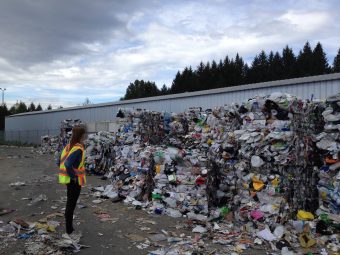
Recycling is not the best, but the last solution within the circular economy system. It is a solution following product reuse, repairs, new business models aimed to extend product shelf life. Recycling is a cure, and waste reduction is prevention. When it comes to treatment and prevention, Serbia is at the very beginning.
When we talk about recycling, we usually think of municipal waste, although it makes up a small share of the total amount of waste. The advantage of Serbia is that it can learn from the example of countries that have entered this process a while ago. All these examples show that the success of recycling lies in three key elements: system structure, trust, and good, transparent communication.
Research conducted in the United States has shown that paying taxes and dealing with the stock exchange is easier for Americans to understand than recycling. Tables of what can and cannot be recycled are confusing even to those in the matter. Large companies that use recycling as a magic word contribute to the confusion. They tell us that their packaging is 100 per cent recyclable, but they omit to tell us if it is really recycled. They invite us to bring clothes for recycling, without clarifying that the percentage of clothes that are actually recycled is very low.
In focus:
Why recycle when everything goes in the same bin anyway?
To make recycling more successful, it is necessary to simplify this process down to the core, stimulate people to separate waste and explain that not everything will go in the same bin, which is very important in Serbia where trust seems to be shaken. It is necessary to design products that will be easy to recycle, establish primary waste selection, and raise awareness among people. This means that when it comes to recycling municipal waste, everyone is responsible – from the state and local self-government, through utility companies, enterprises and citizens. Media has an invaluable role in this process. Centre for the Promotion of the Circular Economy works hard to bring these topics closer to the general population.
NALED has recently recognized our efforts when we made a series of articles on food waste, motivating us to pursue this topic even more. All our readers’ reactions of provide us with the feedback that a new time is coming and that all people concerned about the environment are determined to live by the formula: reduce waste, reuse the product, only then recycle.
The time will come soon when people will stop looking for excuses for their own negligence. One could say that we have quite a hike ahead of us regarding recycling, not to mention the circular economy. We can go on littering because “everybody does it anyway”. We could give up immediately because “Serbia will never be Sweden”. Or we could go shopping with a textile bag, stop wasting food, “buy” clothes in mother’s closet. We can call for the responsibility of large companies and ask the government to pass and respect regulations and change our environment step by step. It’s down to us.
Read the story in the new issue of the Energy portal Magazine RECYCLING.


